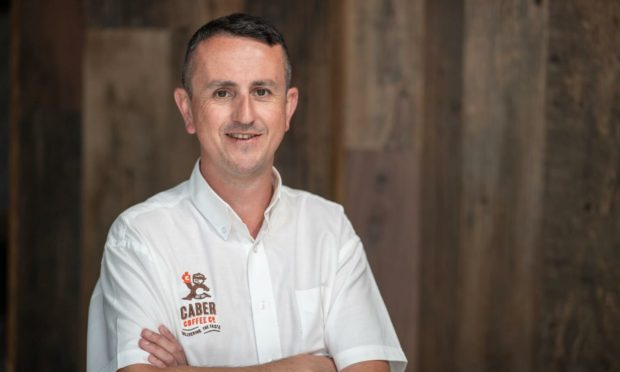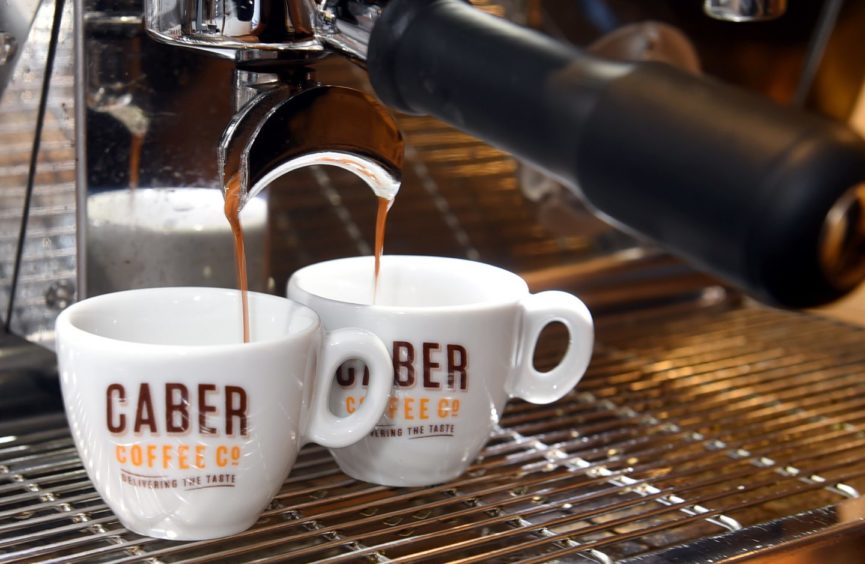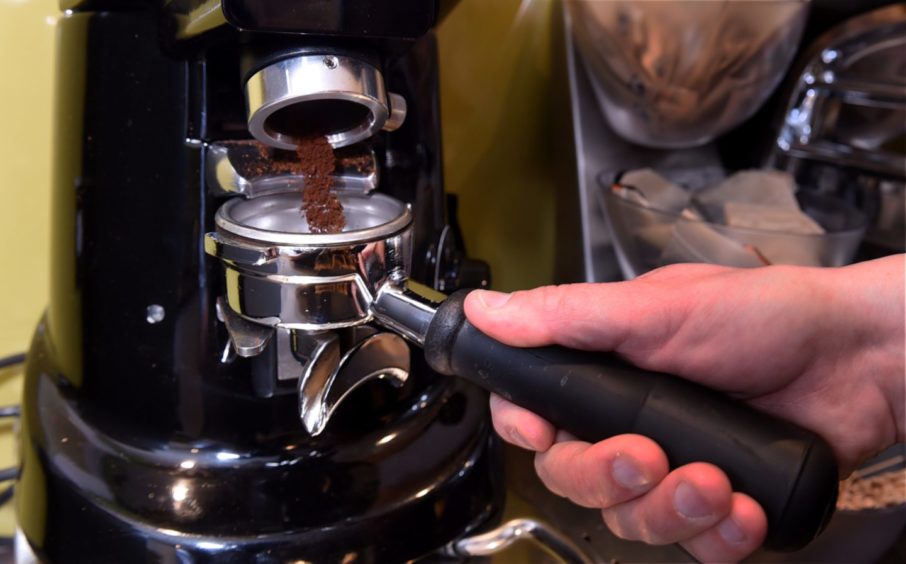What does a business do when, overnight, sales drop to 5% of normal and the only support it has is furlough?
For Aberdeen beverage and coffee-making equipment supplier Caber Coffee, this was the challenge presented by the onset of the Covid pandemic last year.
Unable to mothball the business and with lockdown pressing down hard on his enterprise and many others, managing director Findlay Leask had to find alternatives – and fast.
Mr Leask said: “I walked into our warehouse during the first two weeks of the first lockdown with the realisation I was staring at a ticking timebomb.
“Everything had an expiry date and, at that point, we didn’t know how long the lockdown would last and when hospitality would reopen.
“There was also an impending cashflow crisis, payments through the supply chain simply stopped dead.”
Overnight transformation
The result was an overnight transformation of Caber Coffee from wholesale to doorstep retail, with Mr Leask electing not to take furlough – or indeed a salary or director’s dividend – and instead focus on liquidating stock, one bag at a time, by investing in social media advertising and taking to the road to deliver coffee.
He said: “What was sitting on the shelves had to be turned into cash to pay our suppliers and keep us afloat but it was going to take a lot longer to achieve.
“All the while, we had the added burden of not being able to operate remotely due to physically needing to lift and deliver stock, not knowing when we would trade properly and, at that point, not knowing what financial support there would be.”
And when news of support did filter through, things looked bleak. While closely affiliated to the industry, Caber Coffee was not deemed to be a hospitality business and did not qualify for government support of the sector.
As a wholesaler and not a retailer, many other avenues of assistance were shut apart from local authority funding – and the option of furlough.
Mr Leask recalled: “Initially, furlough was going to be a very finite thing and we still had to try to forecast what the business would look like at the end of that support, including how many people we would retain, without knowing when our markets would open.
Turnover challenge
“Our concern was that, when furlough was switched off, we had to be trading at 60-70% of normal to break even and at the end of May 2020 we were at 20%.
“We faced the prospect of having to try to increase turnover by at least 40% in three or four weeks and although there were rumours of a furlough extension, it really wasn’t good enough.
“The government should have acknowledged earlier that we weren’t on top of the virus and announced an extension to furlough sooner because during that time we, unfortunately, had to make redundancies.
Redundancies
“Because furlough was due to expire, we couldn’t risk gambling on what might or might not happen so our hands became tied to making redundancies.
“Put simply, if furlough had been extended earlier, we could have worked through until now without redundancies – but it was Westminster’s call to leave it until the 11th hour.”
Then towards the end of 2020, the Scottish Wholesale Food and Drink Resilience Fund was introduced and Caber Coffee applied for support to cover six months of its fixed costs to the tune of £45,000. But another blow was to come.
“To be told we’re not a wholesaler, but without explanation of why, really felt like a punch in the guts.”
Findlay Leask, managing director, Caber Coffee.
Mr Leask went on: “On December 23 I was told we were not eligible because we were not a wholesaler.
“For over 30 years all we have done is wholesale product to hotels, restaurants, contract caterers, bars, cafes, offices etc, and overnight all our revenue streams were switched off.
“To be told we’re not a wholesaler, but without explanation of why, really felt like a punch in the guts.
“We were so sure that we were right for the fund and met every requirement – and to this day we still have not had an official response as to why were deemed not to be a wholesaler.”
Coffee with a purpose
Nine months on, Caber Coffee’s long-term resilience has come in the form of a new product and fundraising initiative to highlight the mental health benefits of chatting over a cup of coffee.
The Spill the Beans coffee blend has been created to underline the importance of communicating when it comes to looking after mental health.
A sum of £8 from every case sold will be donated to mental health charities, starting with Mental Health Aberdeen as it prepares to relocate to new headquarters in the city centre.
Next chapter
Mr Leask said: “I know from personal experience how much we can all feel the pressures of life from time to time. The old phrase ‘a problem shared is a problem halved’ has never been more relevant.
“Looking ahead, we hope this product will play an important role in the next chapter of Caber Coffee and highlight the fact that, post-furlough, it’s about a lot more than economic recovery.”


